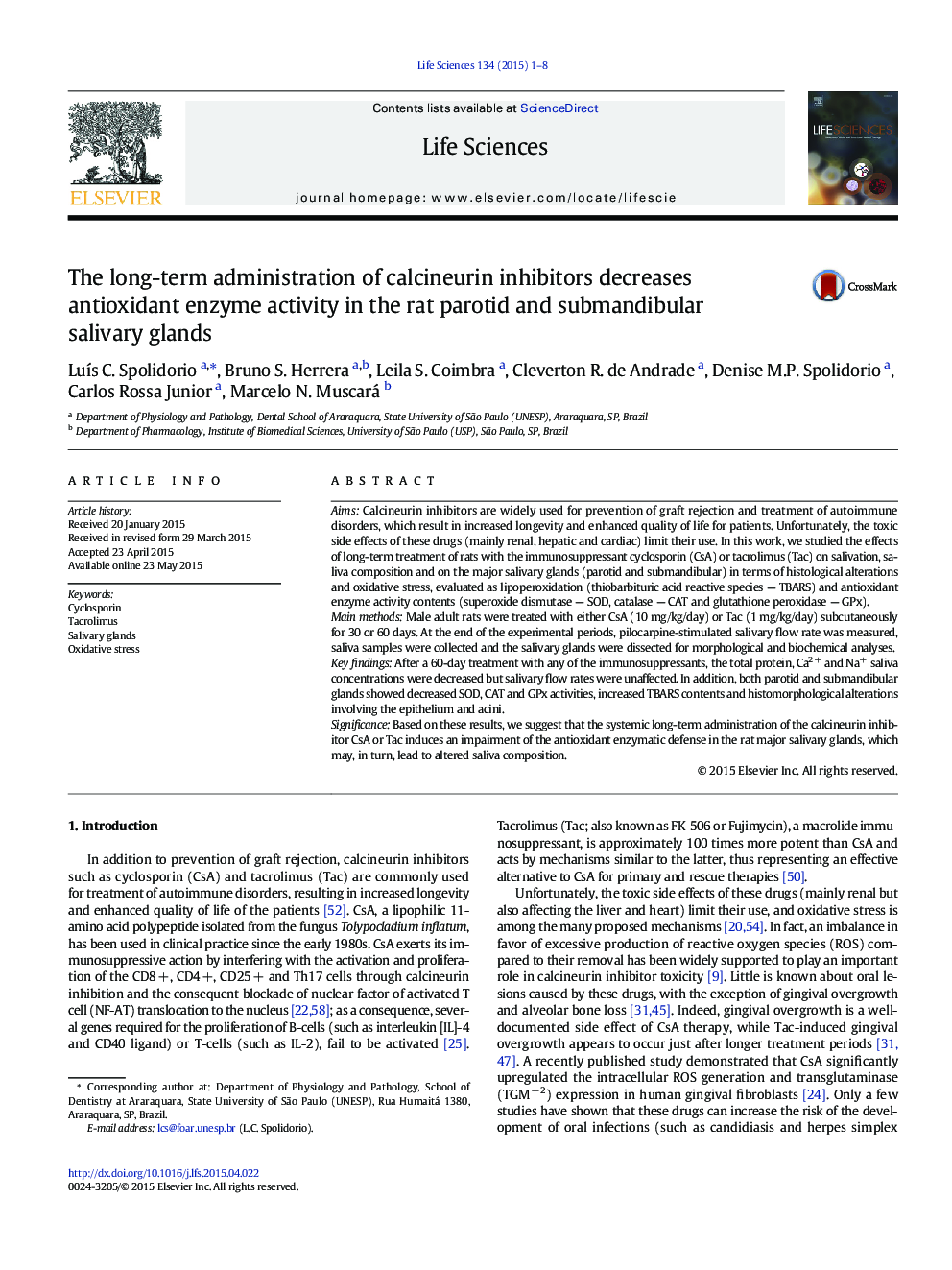| کد مقاله | کد نشریه | سال انتشار | مقاله انگلیسی | نسخه تمام متن |
|---|---|---|---|---|
| 2550889 | 1560594 | 2015 | 8 صفحه PDF | دانلود رایگان |
AimsCalcineurin inhibitors are widely used for prevention of graft rejection and treatment of autoimmune disorders, which result in increased longevity and enhanced quality of life for patients. Unfortunately, the toxic side effects of these drugs (mainly renal, hepatic and cardiac) limit their use. In this work, we studied the effects of long-term treatment of rats with the immunosuppressant cyclosporin (CsA) or tacrolimus (Tac) on salivation, saliva composition and on the major salivary glands (parotid and submandibular) in terms of histological alterations and oxidative stress, evaluated as lipoperoxidation (thiobarbituric acid reactive species — TBARS) and antioxidant enzyme activity contents (superoxide dismutase — SOD, catalase — CAT and glutathione peroxidase — GPx).Main methodsMale adult rats were treated with either CsA (10 mg/kg/day) or Tac (1 mg/kg/day) subcutaneously for 30 or 60 days. At the end of the experimental periods, pilocarpine-stimulated salivary flow rate was measured, saliva samples were collected and the salivary glands were dissected for morphological and biochemical analyses.Key findingsAfter a 60-day treatment with any of the immunosuppressants, the total protein, Ca2 + and Na+ saliva concentrations were decreased but salivary flow rates were unaffected. In addition, both parotid and submandibular glands showed decreased SOD, CAT and GPx activities, increased TBARS contents and histomorphological alterations involving the epithelium and acini.SignificanceBased on these results, we suggest that the systemic long-term administration of the calcineurin inhibitor CsA or Tac induces an impairment of the antioxidant enzymatic defense in the rat major salivary glands, which may, in turn, lead to altered saliva composition.
Figure optionsDownload high-quality image (88 K)Download as PowerPoint slide
Journal: Life Sciences - Volume 134, 1 August 2015, Pages 1–8
